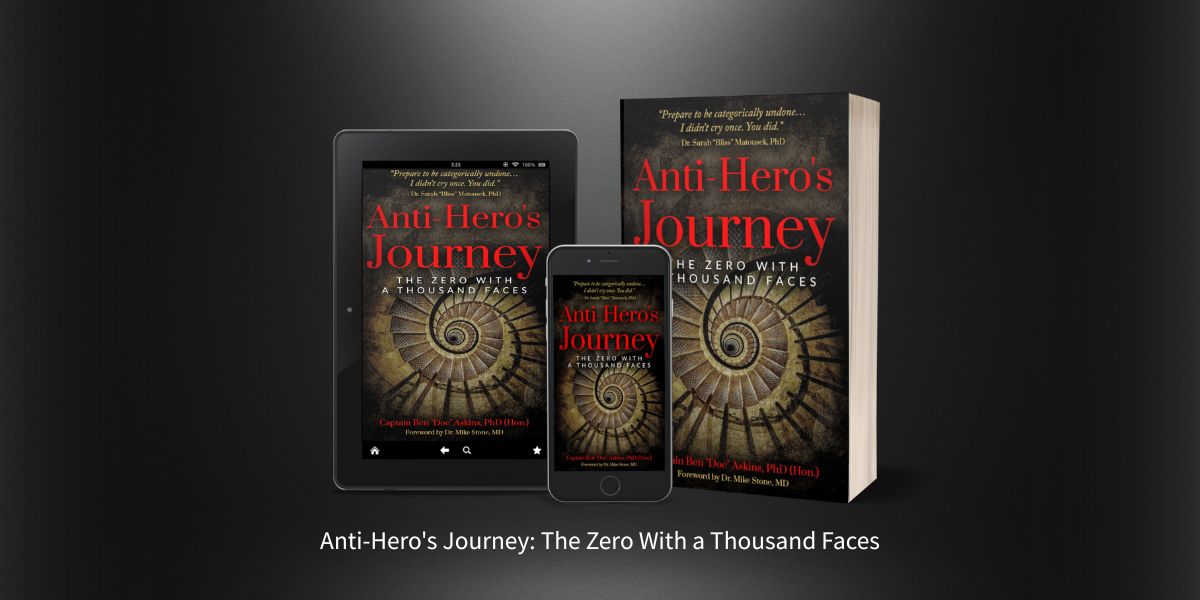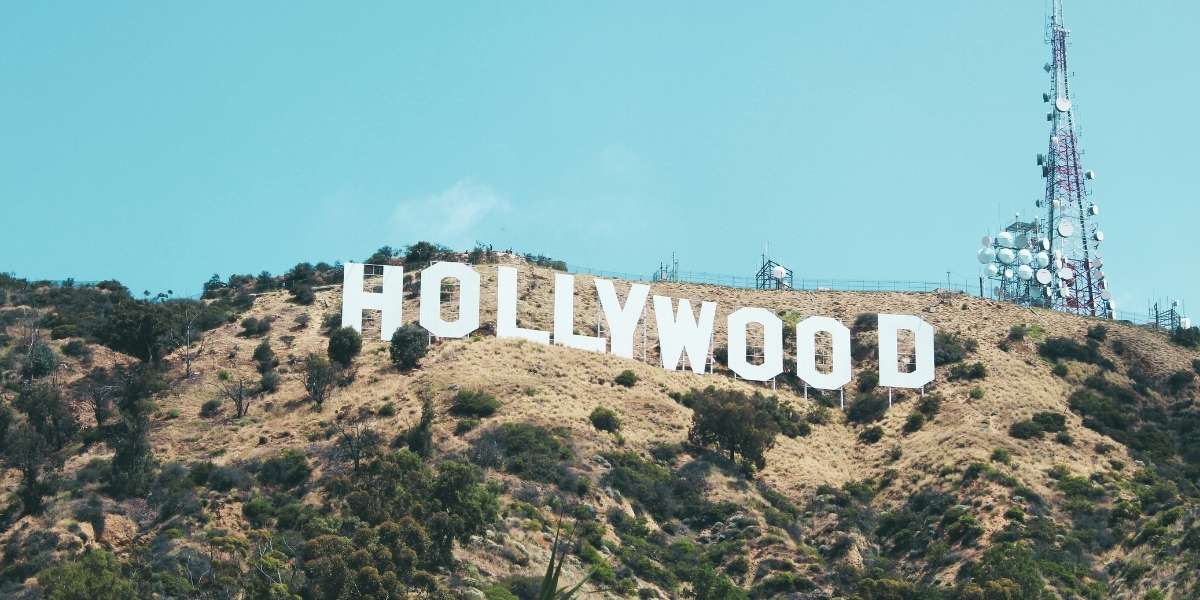By: Adam Smith
In Anti-Hero’s Journey: The Zero With a Thousand Faces, Ben “Doc” Askins doesn’t just critique the heroic myth—he demolishes it with lived experience, dark humor, and the bruised insight of a man who’s patched up both bodies and souls in the world’s most broken places. A combat medic turned psychedelic therapist, Askins has seen humanity raw—on the battlefield, in the therapy room, and in his own haunted mind. What he offers now is a radical alternative to the “find your purpose” gospel: blow it all up and become nothing.
The emotional terrain of Askins’ book is deeply rooted in his years as a combat medic. He describes the job not just as physical triage, but as spiritual first-response. “Being a combat medic meant talking to people about the things they were supposed to talk to the chaplain about, but didn’t trust the chaplain with,” he recalls. “My back hurts, Doc,” often turned into “My wife cheated on me and she’s taking the kids.”
In those late-night conversations, Askins discovered a central truth: our stories aren’t grand—they’re granular. War didn’t just leave physical scars; it revealed how hollow the hero narrative really is. He calls the book “a ‘sorry-not-sorry’ collection of after-action reports from the trenches of human vulnerability,” and it reads like one: raw, jagged, unapologetically human. He doesn’t offer answers—just the honesty of someone who’s been through the fire and came out laughing.
But it wasn’t war alone that changed him. It was psychedelics that, in his words, gave him a “backdoor out of the haunted house” of his own mind. They didn’t heal him in any traditional sense—they erased the “him” that thought healing was required. “They showed me the hologram I’d been calling ‘Ben,’ then laughed with me at the horror of it all,” he says. “They poured gasoline on my memories and set them free.”
Psychedelics, for Askins, weren’t recreational—they were initiatory. They didn’t fix the story. They burned the script, and in that fire, he saw that identity itself was the root illusion. “They’re sacred grenades,” he writes. “Handle with reverence, but pull the pin and there’s no going back.”
This raw intensity spills over into his views on mental health treatment for veterans. Yes, he believes psychedelic-assisted therapy should be available. But not as another bureaucratic band-aid. “These aren’t just treatments. They’re sacraments. Initiations,” he insists. The idea of funneling veterans into fluorescent-lit clinics with state-issued mushrooms and bored clinicians makes him bristle. Healing, he argues, demands more. “Only if we give a damn. If we keep pumping SSRIs and benzos into broken souls and calling it ‘care,’ we’re not serious,” he says. What’s needed, in his view, is ceremony, reverence, and “a playlist curated by God.”
The transformation Askins describes isn’t spiritual tourism—it’s annihilation. But one that liberates. In comparing war and psychedelics, he doesn’t lean into contrast. He sees them as two sides of the same razor. “War tears you open from the outside in. Psychedelics tear you open from the inside out,” he says. “One shows you death until it doesn’t feel real anymore. The other shows you yourself until that’s not real either.”
The parallels are startling. Both strip away the ego, demand surrender, and leave you face-to-face with the abyss. In combat, ego dies screaming. In the medicine space, it dies singing. Either way, the illusion of control gets shattered, and what’s left is terrifying and strangely beautiful. “Combat forces you to stay in control despite absolute external chaos; psychedelics ask you to surrender control despite absolute internal chaos,” Askins explains.
It’s in this dual unraveling—by blood and by light—that the heart of Anti-Hero’s Journey beats. Askins doesn’t claim enlightenment. He claims freedom. Not from pain, but from the false self that suffers under its weight. “Once I saw the contradiction, I couldn’t unsee it,” he says. “Identity’s a mask, and I wrote this book to slap it off all our faces. ‘Me’ first, of course.”
In a world desperate for clarity and control, Askins offers neither. What he offers instead is the void—and the strange peace that comes from no longer needing to fill it. His is a voice forged in war, refined in psychedelic stillness, and delivered with a wry smirk. “I’m raw-dogging the collapse of the American empire reality TV show alongside everyone else,” he says. “But with a smile on my face.”
Askins doesn’t want to be your guru, guide, or hero. He wants to remind you that none of those roles are real. What’s left when the myths fall away? Just breathe. Just presence. Just this terrible, beautiful, empty now.
And maybe—if you’re lucky—the kind of nothing that finally sets you free.
You can pick up your copy of Anti-Hero’s Journey on Amazon or explore it further on Ben’s official website. Whether you’re curious, questioning, or just ready for a different kind of journey—this one’s worth the read.
Disclaimer: This article is for informational purposes only and reflects personal views. It does not constitute professional or medical advice. Individuals seeking mental health support or guidance on psychedelics should consult qualified professionals.






